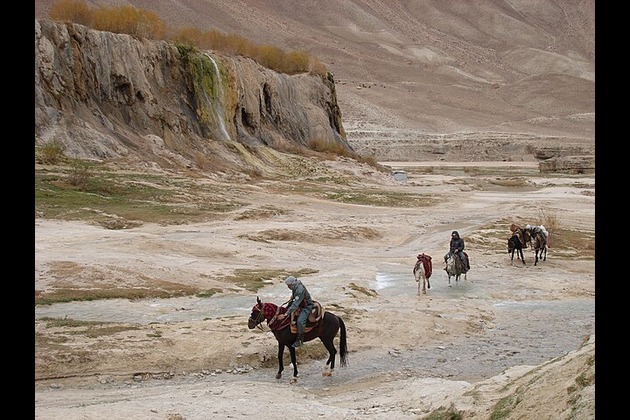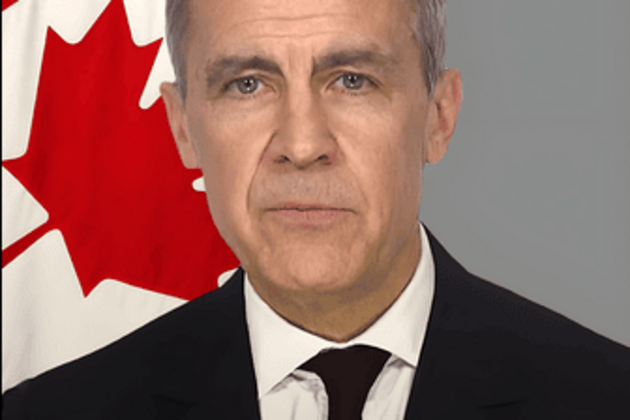Top United Nations Officials Urge Swift Global Action as Haiti Nears Collapse
Press UN
02 Jul 2025, 19:41 GMT+10

Members Consider Secretary-General’s Proposal for UN Support Office to Back Kenya-Led Mission
Spiralling violent and humanitarian crises are pushing Haiti “closer to the brink”, senior United Nations officials warned the Security Council today, as emboldened gangs expand their control and the risk of a total collapse of State authority in the capital grows — demanding urgent international action.
Miroslav Jenča, Assistant Secretary-General for Europe, Central Asia and Americas, Departments of Political and Peacebuilding Affairs and Peace Operations, noted a “sharp erosion of State authority and the rule of law” since his visit in January, with “brutal gang violence” affecting every aspect of public and private life. The capital, Port-au-Prince, was paralyzed by gangs and isolated by ongoing suspension of international commercial flights into Toussaint-Louverture airport. Since then, gangs have only strengthened their foothold, which now affects all communes of the Port-au-Prince metropolitan area and beyond.
Haiti Cannot Afford Delay in Political Transition
He cited some progress by Haitian-led efforts to advance the political process. The Provisional Electoral Council, with support from the United Nations Integrated Office in Haiti (BINUH), has continued preparations to hold elections within the timeline set by the April 2024 agreement. However, any delays or efforts to undermine the political transition reaching the 7 February 2026 deadline for installation of a newly elected a newly elected leadership and parliament “would be worrisome,” he said.
“Haiti cannot afford a drift in the political transition,” he said, noting adoption of an Organization of American States resolution on Haiti, as well as the Caribbean Community’s (CARICOM) ongoing efforts to foster dialogue among Haitian stakeholders in advancing restoration of the rule of law. Meanwhile, major attacks in Artibonite and Center departments, particularly in Mirebalais, demonstrate the growing capacity and intent of gangs to expand their reach. Deploring “the brutality and scale of the violence”, he noted that this year alone BINUH recorded 4,026 victims of intentional homicide — a 24 per cent increase from the same period last year — with 1.3 million internally displaced, “another tragic record number”.
Creating UN Support Office ‘Realistic, Practical’ Option
With the limited protection capacity of the State, “vigilante” or self-defence groups are gaining in popular appeal. Despite persistent under-reporting of sexual violence, BINUH documented 364 incidents involving 378 survivors from March to April. He reported that the Multinational Security Support mission led by Kenya and Haitian National Police have been unable to make headway in restoring State authority — and without additional support from the international community, the outlook is bleak. The Secretary-General’s recommendations to establish a UN support office for the Multinational Security Support mission are realistic and practical, he affirmed.
He noted that BINUH, established in 2019, “was not designed to operate in the kind of hostile environment we are facing today”. The Secretariat has reviewed the mission concept with the objective to have a more focused, smaller, yet more impactful BINUH — that can sustain its international staff and personnel. “We must not fail Haiti at this critical moment” as the options on the table “will be considerably less costly and complex than if there is a total collapse of State presence,” he stressed.
Ghada Fathy Waly, Executive Director of the United Nations Office on Drugs and Crime (UNODC), warned that organized criminal groups are estimated to control 90 per cent of Port-au-Prince. In March, gangs affiliated with Viv Ansanm launched coordinated attacks on infrastructure in Mirebalais, including its prison facility, leading to the escape of 529 high-risk detainees with over 51,000 residents forced to flee to nearby towns. Meanwhile, vital public infrastructure is being disrupted, with the Péligre hydroelectric dam, which supplies nearly 30 per cent of Haiti’s electricity, shut down by local residents in protest against the deteriorating security situation.
Criminal groups are establishing parallel governance structures and providing rudimentary public services, with cascading effects, she said. Container traffic at Port-au-Prince terminal has plummeted, with the price of rice — Haiti’s staple food — risen by more than 30 per cent since 2022, while cooking fuel now sells for up to $5 per gallon on the black market. She further cited the rapid growth in private security companies and vigilante self-defence groups, and increasing use of drone technology “by both law enforcement and criminal groups”. Meanwhile, in Port-au-Prince, reports point to sexual exploitation targeting women and girls, with even more disturbing allegations of human trafficking for organ removal.
However, she noted, Haitian authorities have taken some encouraging steps, particularly in the fight against corruption and arms trafficking. Highlighting the critical importance of UNODC’s work on maritime and border security, she commended efforts by neighbouring countries — particularly action by law enforcement authorities in the Dominican Republic that led to the seizure of two large shipments of illicit firearms.
In the ensuing debate, delegations, including Denmark and Slovenia, deplored the unrelenting deterioration of the security situation, with Panama’s representative voicing alarm over atrocities that have, this year, resulted in the deaths of 4,026 people, and 2,697 victims of sexual and gender-based violence. “Haiti is one of the most dangerous places in the world to be a girl or boy,” he stressed, calling on national authorities to implement protection programmes.
International Response ‘Tepid’
“But what is even more concerning is the fact that the international response continues to be tepid at best and falls short in matching the severity and urgency of the crisis,” said Guyana’s representative, also speaking for Algeria, Sierra Leone, and Somalia. She warned that growing frustration and unrest in the country threatened to undo the political progress and is reflected in the rise of vigilante and self-defence groups, “undermining the Government’s authority”. She called for more to be done to ensure full enforcement of the arms embargo and other sanctions measures. The United States delegate noted that Haiti was reported as one of the countries with the most violations and abuses against children in 2024, the majority committed by the Viv Ansanm coalition — which Washington, D.C., has designated as a foreign terrorist organization.
The Russian Federation’s representative, recalling that the assassination of President Jovenel Moïse four years ago was the trigger plunging Haiti into crisis, observed that the crime and consequent inconclusive investigation encapsulated the problems faced by the country: external interference; inaction of authorities; and escape of suspects. He called the timeline for 2026 elections “unrealistic” and called for greater voluntary funding for the Kenyan-led security mission before it becomes yet another example of mechanisms that did not live up to their potential. Moscow stands ready to discuss the Secretary-General's “sensible” proposal to support the Mission.
The representatives of Greece, France and the Republic of Korea voiced support for the commitment of Kenya and the other troop-contributing countries to the Multinational Security Support mission — with Pakistan’s delegate, Council President for July, speaking in national capacity, calling on the Council to ensure that the mission is robust, well-resourced, and effective — while also helping build Haiti’s police, justice, and governance capacity for the long term. “Anything less risks collective failure tomorrow,” he added.
China’s delegate underscored the need to advance the political process, to lay an important foundation for an effective, accountable Government, which is key to get Haiti out of the chaos. In a similar vein, the United Kingdom’s representative underscored the need for Haitian efforts to advance the restoration of democratic rule. In this context, “more action is needed to lay the groundwork for inclusive and credible elections”, he said.
Haiti Calls for Greater Council Attention
Responding, Haiti’s delegate noted the issue of the country has “almost become a ritual” at the Council — leading to “fatigue” among the Haitian people awaiting decisive international response. Thanking Kenya for leading the non-UN security mission, which has not received sufficient assistance, he voiced support for establishment of a UN support office for that Mission, as well as the renewal of BINUH — with a strengthened mandate. The Mission must also enable better ownership of the sanctions regime by the Haitian justice system, particularly through border control, to limit the arrival of weapons and ammunition that fuel gangs. He urged BINUH to further improve its “communications in Haiti regarding its mandate, so that its role is better known and understood by the Haitian society”.
“The future of Haiti is inextricably linked with the future of our region, stressed the representative of Barbados, speaking for the Caribbean Community (CARICOM). He echoed deep concern over the deteriorating situation, with about 6 million people in need of humanitarian assistance and protection and 1.3 million internally displaced persons. “Haiti remains one of only five countries worldwide with people living in famine-like conditions or confronted with catastrophic levels of acute food insecurity,” he stressed. He noted that while today’s meeting was on BINUH, the Council must urgently consider the Secretary-General’s proposal for a hybrid approach to security in Haiti.
Roberto Álvarez Gil, Minister for Foreign Affairs of the Dominican Republic, noted the accelerated collapse of Haiti due to armed gangs has generated enormous human suffering, in turn sparking migration and social pressure on his country — pointing to the control of neighbourhoods, ports and trade routes by criminal networks; violence against vulnerable Haitians; bloodcurdling sexual violence; and terrifying public executions. Against this backdrop, he called on the Council to strengthen the sanctions regime and on the international community to act urgently and boldly. “What we do, or fail to do, for Haiti will mark the legacy of this Council for history,” he stressed.
Deployment of 991 Security Mission Personnel Short of 2,500 Envisaged
Kenya’s delegate, pointing out that 25 June marked one year since his country deployed the first contingent of the Multinational Security Support Mission in Haiti, said that subsequent deployments have brought the numbers to 991. However, this falls considerably short of the 2,500 envisaged under the Concept of Operations. Despite such constraints, it has made progress in stabilizing key areas of Haiti, he said, pointing to, among others, reopened schools and hospitals and securing the Presidential Palace and Port-au Prince International Airport. However, the Trust Fund currently has $52 million unallocated, meaning the mission is operating at less than 30 per cent capacity, exposing it to serious risks, he warned. Therefore, he called for personnel and logistical support to be lent to the mission and urgent operationalization of the planned Forward Operating Bases.
 Share
Share
 Tweet
Tweet
 Share
Share
 Flip
Flip
 Email
Email
Watch latest videos
Subscribe and Follow
Get a daily dose of Haiti Sun news through our daily email, its complimentary and keeps you fully up to date with world and business news as well.
News RELEASES
Publish news of your business, community or sports group, personnel appointments, major event and more by submitting a news release to Haiti Sun.
More InformationInternational
SectionVenetians protest Bezos wedding with march through the town
VENICE, Italy: Over the weekend, hundreds of protesters marched through the narrow streets of Venice to voice their opposition to billionaire...
New French law targets smoking near schools, public spaces
PARIS, France: France is taking stronger steps to reduce smoking. A new health rule announced on Saturday will soon ban smoking in...
Trump hints at DOGE investigation of Musk subsidies
WASHINGTON, DC - U.S. President Donald Trump on Tuesday claimed Elon Musk's success has been built on government subsidies. Without...
Native leaders, activists oppose detention site on Florida wetlands
EVERGLADES, Florida: Over the weekend, a diverse coalition of environmental activists, Native American leaders, and residents gathered...
Beijing crowds cheer AI-powered robots over real soccer players
BEIJING, China: China's national soccer team may struggle to stir excitement, but its humanoid robots are drawing cheers — and not...
COVID-19 source still unknown, says WHO panel
]LONDON, U.K.: A World Health Organization (WHO) expert group investigating the origins of the COVID-19 pandemic released its final...
Business
SectionWall Street diverges, but techs advance Wednesday
NEW YORK, New York - U.S. stocks diverged on Wednesday for the second day in a row. The Standard and Poor's 500 hit a new all-time...
Greenback slides amid tax bill fears, trade deal uncertainty
NEW YORK CITY, New York: The U.S. dollar continues to lose ground, weighed down by growing concerns over Washington's fiscal outlook...
Taliban seeks tourism revival despite safety, rights concerns
KABUL, Afghanistan: Afghanistan, long associated with war and instability, is quietly trying to rebrand itself as a destination for...
Nvidia execs sell $1 billion in stock as AI boom drives record prices
SANTA CLARA, California: Executives at Nvidia have quietly been cashing in on the AI frenzy. According to a report by the Financial...
Tech stocks slide, industrials surge on Wall Street
NEW YORK, New York - Global stock indices closed with divergent performances on Tuesday, as investors weighed corporate earnings, central...
Canada-US trade talks resume after Carney rescinds tech tax
TORONTO, Canada: Canadian Prime Minister Mark Carney announced late on June 29 that trade negotiations with the U.S. have recommenced...













